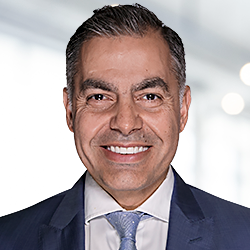Short Duration High Quality
Approach
This strategy invests exclusively in investment grade securities while maintaining a short duration profile of 1-3 years. We believe that intensive security level research paired with a broadly informed awareness of the economic and credit cycle is critical to identifying superior investment opportunities and managing downside risk.
Key Benefits
- A short duration and quality-focused strategy aimed at providing protection through volatile markets
- Top-down macro themes shape overall strategy and provide context for our bottom-up security selection
- Balanced emphasis on quantitative and qualitative inputs foster strong checks and balances and validation for our investment themes
- Proprietary risk budgeting and management tools guide portfolio construction
- Historically competitive absolute and risk-adjusted performance over time
Approach
This strategy invests exclusively in investment grade securities while maintaining a short duration profile of 1-3 years. We believe that intensive security level research paired with a broadly informed awareness of the economic and credit cycle is critical to identifying superior investment opportunities and managing downside risk.
Key Benefits
- A short duration and quality-focused strategy aimed at providing protection through volatile markets
- Top-down macro themes shape overall strategy and provide context for our bottom-up security selection
- Balanced emphasis on quantitative and qualitative inputs foster strong checks and balances and validation for our investment themes
- Proprietary risk budgeting and management tools guide portfolio construction
- Historically competitive absolute and risk-adjusted performance over time
Performance
Performance
| As of 1/31/26 | 1 Mo | 3 Mo | YTD | 1Yr | 3Yr | 5Yr | 10Yr | Since Inception (9/01/96) |
|---|---|---|---|---|---|---|---|---|
| Gross | 0.40 | 1.32 | 0.40 | 5.82 | 5.26 | 2.39 | 2.52 | 3.64 |
| Net | 0.38 | 1.26 | 0.38 | 5.59 | 5.03 | 2.16 | 2.29 | 3.32 |
| Index* | 0.23 | 1.05 | 0.23 | 5.11 | 4.57 | 2.01 | 2.06 | 3.29 |
* Bloomberg U.S. Government/Credit 1-3 Year Index
Past performance does not guarantee future results.
Periods greater than one year are annualized. Performance data is considered final unless indicated as preliminary. Monthly performance is based on full GIPS Composite returns. Access the GIPS page for full composite details.
The Composite performance information represents the investment results of a group of fully discretionary accounts managed with the investment objective of outperforming the benchmark. Information is subject to change at any time. Gross returns are presented after all transaction costs, but before management fees. Returns include the reinvestment of income. Net performance is shown after the deduction of a model management fee equal to the highest fee charged.
Literature
Date: December 31, 2025
Approved For: Financial Professional or Qualified Institutional Investor Use Only
Date: December 31, 2025
Approved For: Financial Professional or Qualified Institutional Investor Use Only
Investment Team
Disclosures
Principal Risk
The principal risks are generally those attributable to bond investing. Holdings are subject to market, issuer, credit, prepayment, extension and other risks, and their values may fluctuate. Market risk is the risk that securities may decline in value due to factors affecting the securities markets or particular industries. Issuer risk is the risk that the value of a security may decline for reasons specific to the issuer, such as changes in its financial condition. The strategy may invest in mortgage-related securities, which can be paid off early if the borrowers on the underlying mortgages pay off their mortgages sooner than scheduled. If interest rates are falling, the strategy will be forced to reinvest this money at lower yields. Conversely, if interest rates are rising, the expected principal payments will slow, thereby locking in the coupon rate at below market levels and extending the security’s life and duration while reducing its market value.



